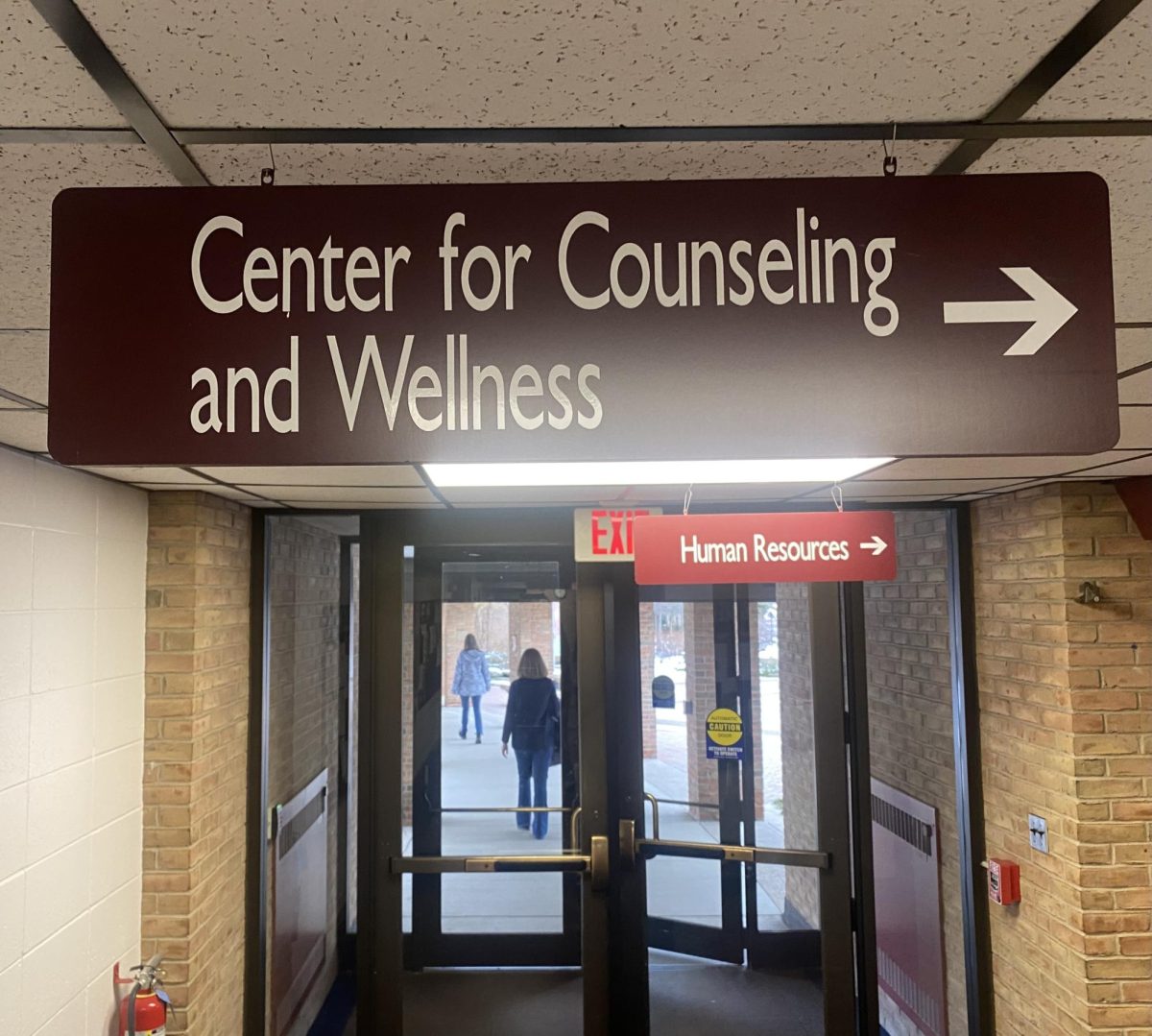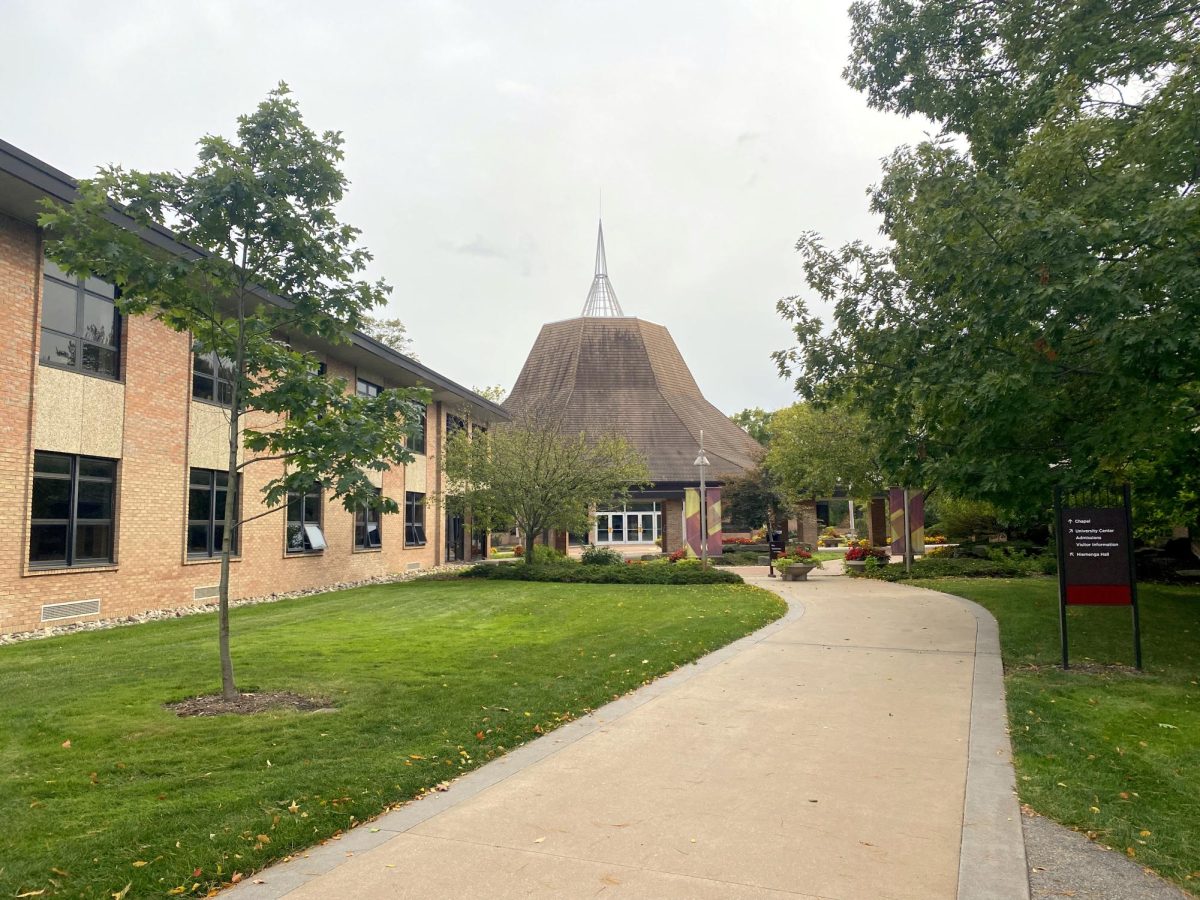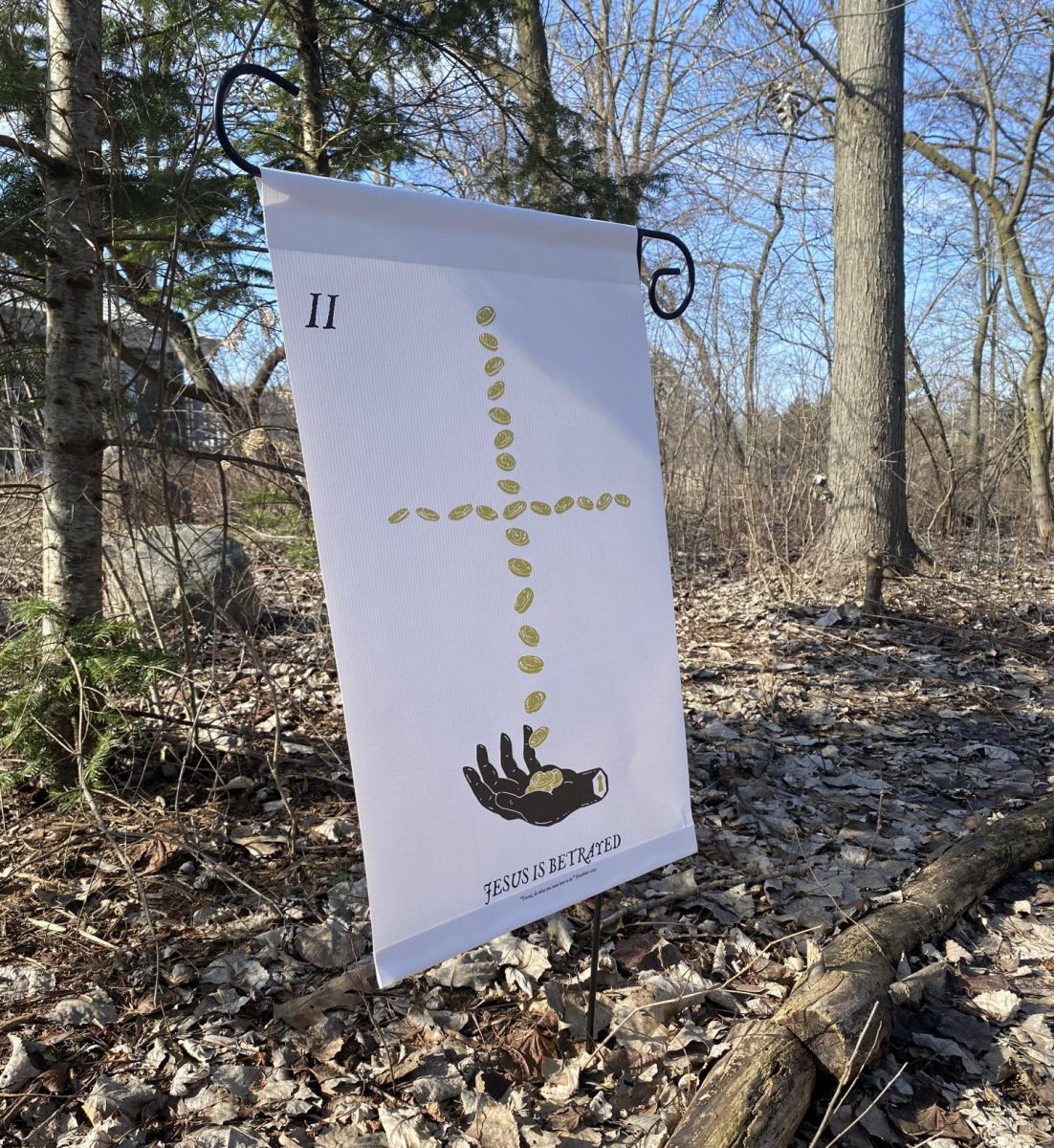As midterms steadily approach, Calvin’s Center for Counseling and Wellness (CCW) and Campus Ministries team rely on a close partnership to care for student’s mental health.
While many might think that the effects of seasonal affective disorder, or SAD — a condition in which reduced daylight and poor weather may lead to clinical depression for some students — would cause winter to be the busiest season for the CCW, director of the CCW Irene Kraegel says that this is not the case. Rather, she said, the CCW sees the most clients during the most stressful times in the semester, like midterms and finals. “I would say that the patterns we notice in our office are much more linked to the pressures of the academic calendar than they are to the weather itself,” Kraegel said. “We 100% see our numbers going up around midterms and then escalating right before finals.”
In those times of increased stress for students, both the CCW and Campus Ministries are grateful for the collaboration they can have on Calvin’s campus. For Kraegel, having Campus Ministries right across campus is a useful resource to support students in all aspects of their well-being, and represents the freedom that the CCW has as a counseling center at a Christian university. “I love working at a counseling center where we can very openly talk about issues of faith,” Kraegel told Chimes.
Oftentimes when working with students, both teams will have open communication with one another about their shared work with students, and will often refer students to one another. “If a student gives us permission, we’re able to share, ‘Hey, this is what I’ve talked about with this person…and I’d like you to talk about these things with this person,’” said Pastor Mary Hulst, university pastor. “ It’s great here because it’s literally across the yard.”
Though both Kraegel and Hulst see their work as interconnected, they also realize the boundaries of their respective fields. “The field of mental health does value spirituality as one of the coping skills available in our mental health healing process, but not equally in every context,” Kraegel said. Depending on the needs and comfort level of the student, counselors at the CCW may differ from client to client on how explicitly they integrate their faith into their work. “We may be more likely than a counselor at a secular institution to ask questions upfront…about a student’s spiritual journey,” Kraegel told Chimes, but, she said, “we never impose that on a student.” In fact, according to Kraegel, the CCW’s context in the Christian Reformed tradition may even allow them to be more supportive and respectful in their counseling to students who may not hold Christian views themselves.
While Kraegel recognizes the impact that theology can have on our mental wellness, she also recognizes “That there are limits to what we are qualified to do” in the therapy room. In these circumstances, she turns to the Campus Ministries team for issues that may require more theological training.
According to Hulst, much of the work of the Campus Ministries team is in helping students understand how their faith relates to other aspects of their lives. “‘How do I deal with my faith and my sexuality? My faith and my addiction? My faith and my family who aren’t believers?’” are common questions that the Campus Ministries team is equipped to answer, said Hulst. Similarly to Kraegel, however, Hulst recognizes the limitations of her role as university pastor. In seminary, according to Hulst, one of the things that was taught to her was the importance of not overreaching your role as pastor. “Remember, you’re not the lawyer, you’re not the doctor, you’re not the psychologist, you’re the pastor,” was a common refrain, she said. When it comes to dealing with issues like eating disorders or clinical anxiety, the Campus Ministries team will often refer those students to someone with more mental health expertise in the CCW, according to Hulst.
In this way, Kraegel sees the interaction between faith and the work of the CCW as “a Venn diagram,” she told Chimes. Though both the CCW and the Campus Ministry team might lead a student through a spiritual or mental health practice that does not directly correlate to the work of the other, there’s often still “this beautiful overlap in the middle,” said Kraegel. Because she finds that Scripture continually teaches that Jesus cares for our wellness, she feels “really fortunate to have in Pastor Mary and her team people who believe in mental health treatment alongside good spiritual counsel and development.”








